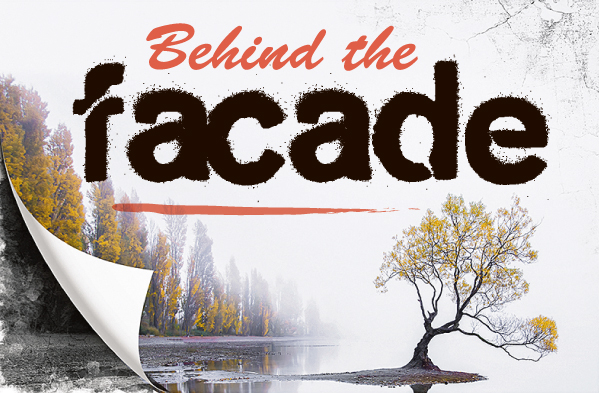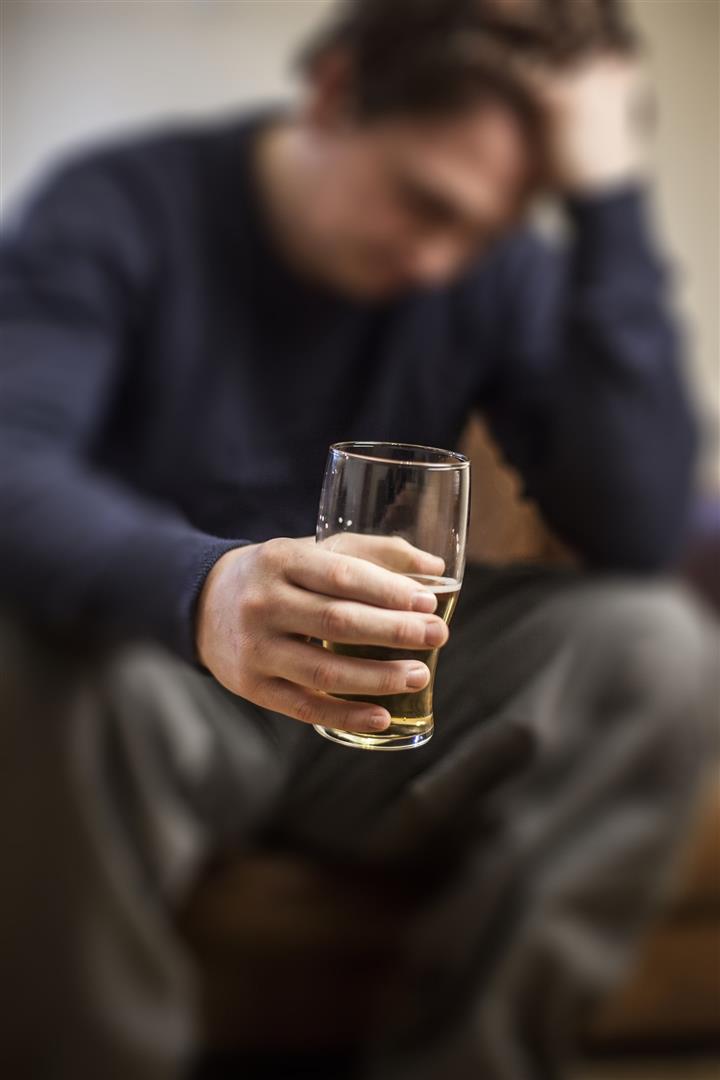Throughout Behind the Facade there has been one consistent topic each source referred back to as a catalyst behind social harm — alcohol. This week Aspen Bruce reports on alcohol.

Tom (name changed) was 13 years old when he had his first sip of alcohol.
He was at a family friend’s farm when they offered him a chilled beer. He drank half a gallon. Tom related his relationship with alcohol back to that day, and recounted a night during his schooling years.
‘‘I was still shy and didn’t know how to dance — I drank a half bottle of vodka on the way in to try and calm my nerves.’’
In retrospect, by the end of school he was hooked.
‘‘I can remember one of my dearest friends saying to me, ‘you’re drinking too much, you’re a bloody alcoholic’ — at 18.’’
During his university years the drinking escalated.
‘‘We didn’t have a shower in the scungy Castle St flat — there was only a bath.
‘‘I remember lying in that bath. . . getting pre-loaded and sucking on a bottle of beer.’’
After a series of alcohol-related incidents, he left university.
He moved to Invercargill before heading north with his business.
‘‘But I took my illness with me.’’
Some unfortunate events resulted in him being taken to hospital with multiple injuries — a fractured skull, punctured lung, broken ribs and a ruptured liver.
“We talk about the insanity of our illness. I spent two months in hospital and then rehabbed on a farm.”
Despite the injuries, Tom’s drinking did not subside.
He had several other alcohol-related incidents before moving back to the South Island.
‘‘At that time, I was unable to get honest or be willing to do anything about it.’’
Some friends found him in a coma in a caravan during an A&P event.
‘‘I couldn’t get out of bed. The doctor came out and said to take me to the hospital.
‘‘I was fortunate — while I was there, two guys came and said ‘we’ve been told to take you to AA [Alcoholics Anonymous]’.
‘‘I said ‘I’m in bed’ — ‘well we’re going to take you out of there’ [they said].
‘‘I went to my first meeting, and I haven’t drank since, because what I found in that room was smiling, happy people.’’
His perception of an alcoholic was based on what he had seen in the Queen’s Gardens and elsewhere in Dunedin.
‘‘Coat on and brown paper bag, invariably men. But that wasn’t me.’’
Wise words from a close confidant challenged Tom’s perception.
‘‘He said ‘here’s a bit of advice: alcoholic drinking is drinking that causes problems’.’’
His turning point came from sharing and listening to the stories of other people.
‘‘I was always listening for the differences — I didn’t kill anyone, this, that or the next thing . . . but I was told to look at the similarities.’’
A reflective moment came during rehabilitation where five of the 12 in the group were women.
‘‘All of whom had been sexually abused, so it relates back to [alcohol] is a panacea for all illnesses.’’
A common barrier to recovery was AA’s religious associations — it was set up by a Christian group.
He understood this intimately after a close family member attended one meeting, saw some religious banners and never came back.
‘‘The end result was they drank themselves to death.’’
His perspective was simple — alcoholic drinking is drinking that causes problems.
‘‘No philosophy, no religion in it. Just, ‘do I want to live a decent life?’.’’
Another barrier in recovery was cross-addiction — shifting from or between alcohol and other substances.
Tom struggled after his doctor reviewed the medication he was on, and said he no longer needed it.
‘‘I was suddenly [wondering] . . .what am I going to do . . .how am I going to get to sleep?’’
That experience revealed ‘‘I needed to take the cotton wool out of my ears and put them in my mouth, and listen to reality’’.
He now lives in Wanaka and noticed some of the same struggles within the wider community.
Wanaka’s weekly police Crimeline consistently contains anecdotal accounts of alcohol-related harm.
The Ministry of Health NZ Health Survey 2020/21 reported 25% of adults drink hazardously every year.
The hazardous drinking percentage increased to 40% for those aged 18-24.
University of Otago department of psychology senior lecturer Ryan Ward said the acute effects of alcohol withdrawal could be fatal.
‘‘One thing that a lot of people don’t know about alcohol is it’s the only drug that has a potentially fatal withdrawal syndrome.’’
Other drugs that had unpleasant withdrawal syndrome included heroin, which typically resulted in symptoms similar to a bad case of the flu for about a week.
‘‘But alcohol, because it’s a dirty drug and doing so many things to the systems that are really critical for a normal functioning of your body and brain, you really have to watch somebody who’s withdrawing from alcohol because it can actually kill them.’’
It was important not to withdraw from heavy alcohol use without supervision.
‘‘It can lead to a condition known as delirium tremens — it can be a potentially dangerous drug to come off, without being managed.’’
Alcohol Anonymous meetings are held at the Wanaka Plunket Rooms, 51 Ardmore St (Monday and Friday), and St Ninian’s Church Hall in Hawea Flat (Wednesday) from 7:30pm.





